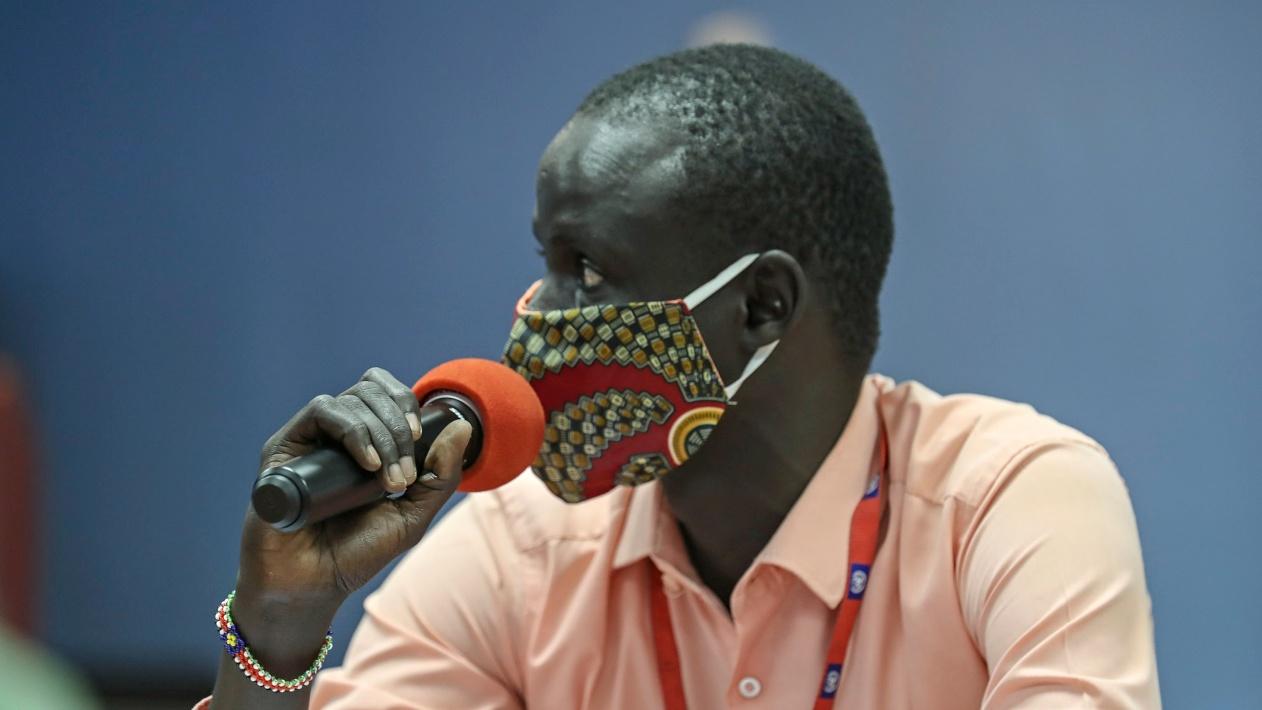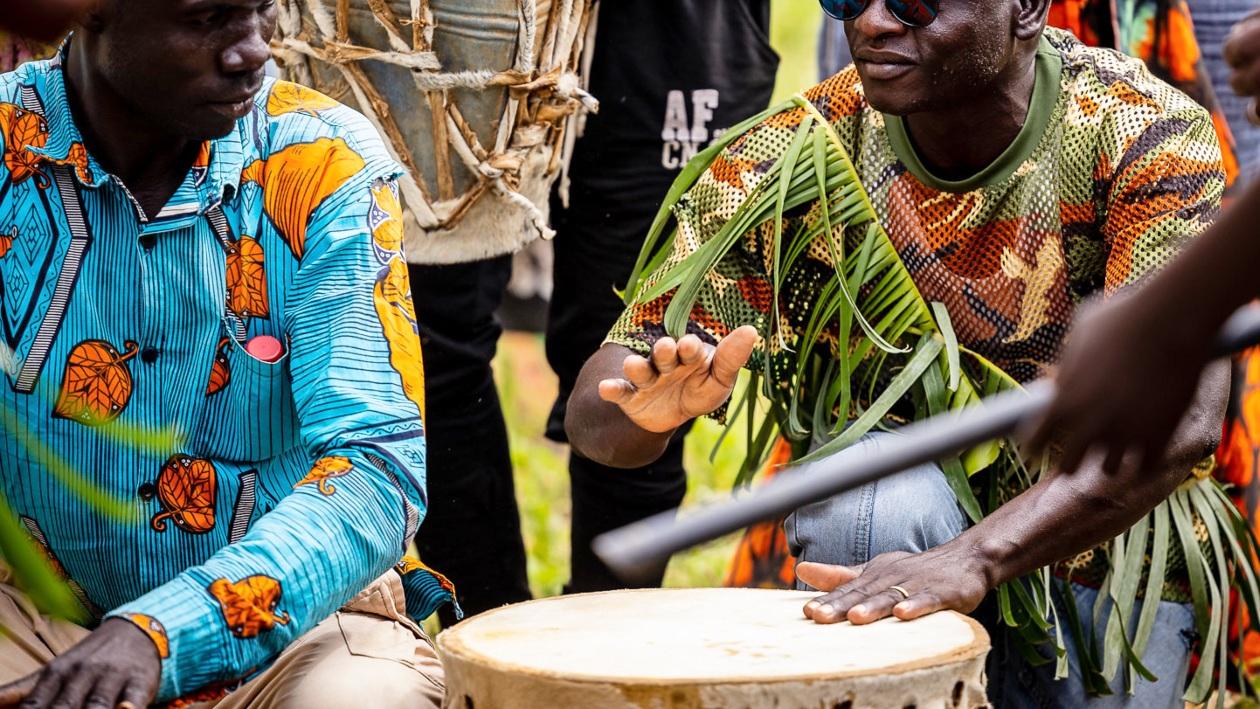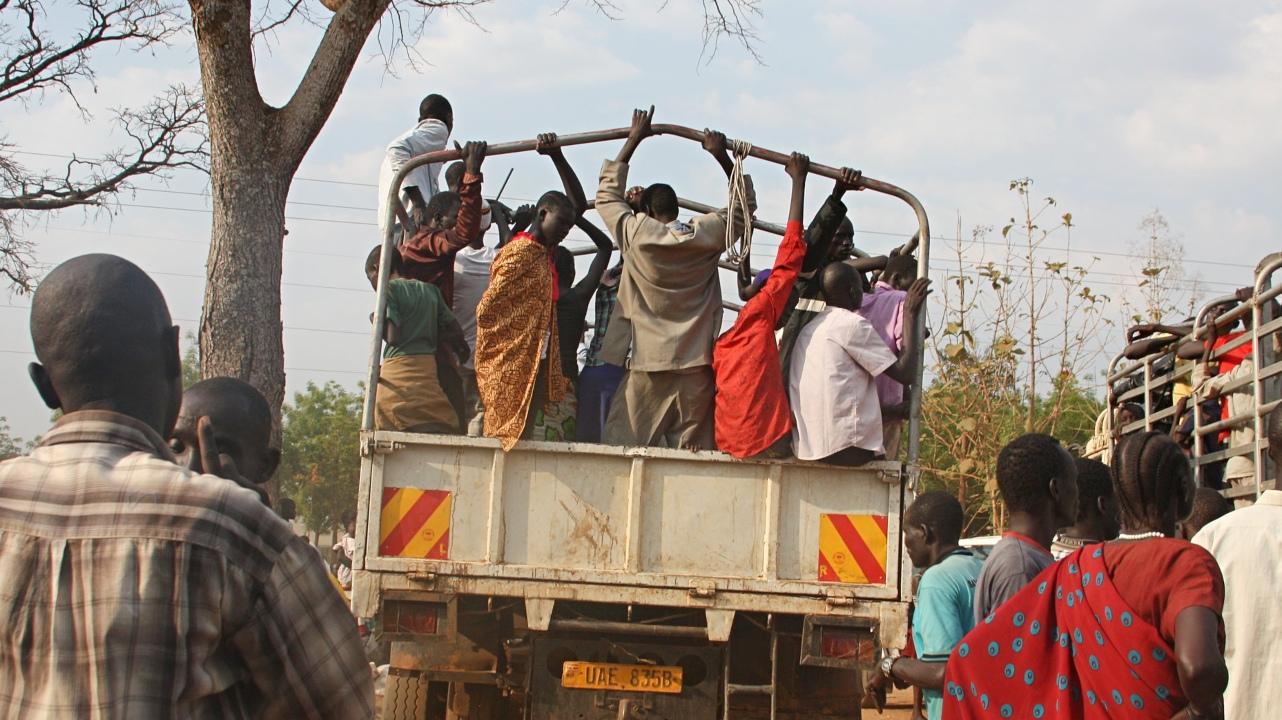Humanitarian protection remains inaccessible for the tens of thousands of displaced South Sudanese living in Sudan outside of refugee camps. A conversation between researcher Nelly Caesar Arkangelo and a young South Sudanese car-cleaner in Khartoum reveals different forms of safety and protection in these contexts, ranging from community-based mechanisms to informal legal and spiritual support.
This post is based on a research from the project Safety of Strangers at the LSE Firoz Lalji Institute for Africa.
Nearly 70% of displaced South Sudanese in Sudan live outside refugee camps, alongside host communities. The majority of these South Sudanese are in Khartoum in ‘open-areas’ – informal refugee communities within and on the outskirts of the city with significant humanitarian needs. The presence of such large numbers of displaced South Sudanese outside of camp settings can be attributed, at least in part, to the long-embedded ideas South Sudanese have of their identity in Sudan. Having grown up as Sudanese citizens until South Sudan’s independence in 2011, many South Sudanese see their identity in Sudan as based more on being quasi-citizens than refugees. The familiarity of South Sudanese with Khartoum further creates a sense of self-reliance when it comes to generating livelihoods and a safety network of family and friends to rely upon.
In 2016, the Sudan government started referring to South Sudanese as refugees due to the continuous escalation of violence in South Sudan and the large influx of South Sudanese to the country. UNHCR’s 2018 Refugee Response Plan (RRP) began strengthening assistance responses to the out-of-camp population to allow them to remain living in these settings. This was seen by the RRP as a win-win for both refugees and displaced and host communities.
Living outside refugee camps, however, creates challenges when it comes to identifying, accessing and providing humanitarian protection. At the same time, most displaced South Sudanese lack knowledge and an ability to access institutionalised humanitarian protection mechanisms, such as the UNHCR and humanitarian organisations. Instead, they rely on a combination of informal and community-based protection mechanisms.
Deng (a pseudonym) fled from conflict in South Sudan and spent forty days in the bush before reaching the Bentiu Protection of Civilians (POCs) site run by the United Nations, where he spent four months. Afterwards, he undertook an arduous seven-day journey to Khartoum in 2017 where he now lives. During my conversation with Deng, he identified three forms of bottom-up support and protection mechanisms for his safety and well-being.
Community-based mechanisms
Deng mainly relies on family, friends and a host community for support in Sudan. According to him, medical care remains one of the key challenges and could lead to serious sickness or death, particularly when coupled with poor dietary conditions. These are for two reasons.
Firstly, he lacked legal documentation, such as a ‘refugee card’ provided by the UNHCR, which makes it difficult to access public hospitals. Secondly, commercial hospitals are often expensive and unaffordable. Support with free medication from a generous pharmacist that frequents tea areas around Deng’s workplace consequently provides him a valuable form of assistance. Through his work he has built up his own community in Khartoum, and this helps keep him safe.
Deng further writes songs and is part of a group of South Sudanese boys that sing at events. The songs, which are often written by Deng, reflect traumatic events he witnessed during the 2016 insurgency in Bentiu and the forty days he spent in the bush. Music plays a major role in Deng’s life – a form of therapy and an advocacy tool he uses to spread messages of peace in South Sudan.
Informal legal support
Encountering law-enforcement officers, police and authority figures is one of Deng’s main concerns. He fears he could be preyed upon and discriminated against, which exacerbates his vulnerability and inability to defend himself. At his workplace, near the Nile, some of the car-cleaners are alcoholics and illegal drug users. This in turn induces petty theft, stealing and other criminalities, which requires a police presence.
Deng and his colleagues often rely on the kindness of police officers or judges who are sympathetic with their difficult and deprived backgrounds. In addition, with around 88% of displaced South Sudanese being women and children, some police officers and judges believe extending kindness to these boys is a way to help their single mothers, who often bear the brunt of their sons’ incarceration.
Regarding the role of South Sudanese community leaders and elders living in Khartoum, Deng believes they had a more robust role in mediating criminality, legal issues and discipline of unruly community members while in South Sudan. Here their role is reduced to involvement in social issues, such as the impregnation of girls or elopements.
Spiritual protection
Off and on, Deng cleans up to three cars a day, at a cost of around 400 SDG per car (around £0.70 GBP). His highest earning could be around 1,000 to 1,500 SDG a day (equivalent to £1.75-2.60). Car washing is laborious, requiring physical fitness to wash and fetch water from the Nile through risky and improper makeshift slippery pass-ways. Without job security or insurance, Deng often works days and nights in back-to-back shifts.
The only day he feels entitled to few hours rest is Sunday, when he visits a Nuer church in Khartoum city. Since Deng was in South Sudan, church has played a vital role in his life. He comments that ‘at church, I listen to prayers and stories from the bible, and it makes me calm and helps me to become disciplined. You hear good words and things like not stealing. This helps me to implement them and follow them in my life’.
Church provides Deng a supernatural protection, yet he feels invisible and not as prominent as the choirs, preachers or elderly members of the church. Subsequently, he is hesitant to approach church leaders for assistance and protection. He suffices to listen to the word of God.
Deng’s account of life as a refugee in Sudan reveals a combination of community-based, host-community and supernatural forms of protection, which provide alternative yet, in many ways, equally effective forms of institutionalised humanitarian protection mechanisms. For the tens of thousands of people in the country like Deng living outside of refugee camps, these bottom-up approaches to protection are the only forms available.
Photo: UNDP Launches Pilot Projects for Recovery and Reconciliation in South Sudan. UN Photo/JC McIlwaine. 20 October 2014. Juba, South Sudan. Licensed under CC BY-NC-ND 2.0.





